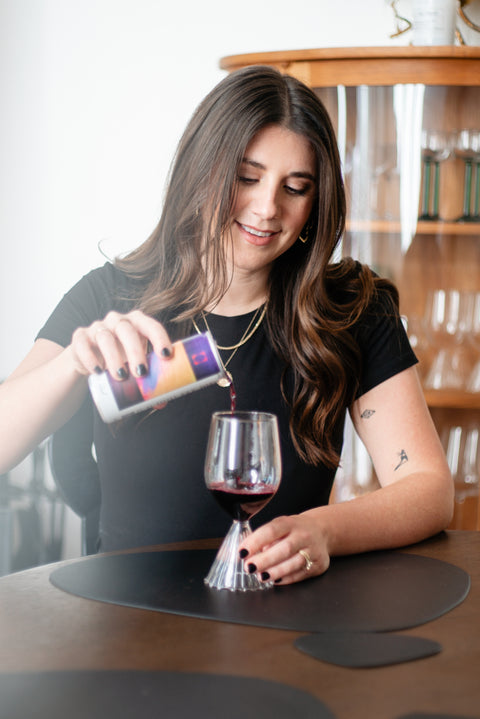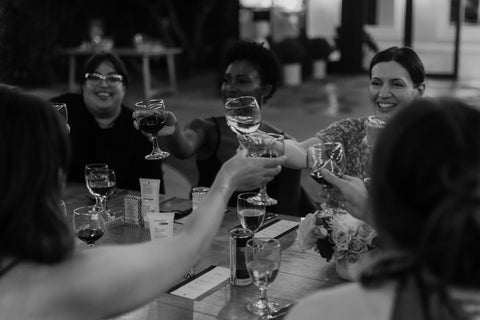
I'm often asked what exactly it takes to become a sommelier? Whether you’re an aspiring wine professional or simply curious about becoming one, here’s an inside peek at what it takes to become a sommelier.
First things first, what is a sommelier? A sommelier is a trained wine professional who specializes in all aspects of wine service and pairing. Traditionally associated with fine dining establishments, sommeliers play a key role in curating wine lists, making recommendations, and ensuring guests have an exceptional wine experience.
Becoming a sommelier is a journey that requires dedication, education, and practical experience. Here's what it takes to become a sommelier:
Passion for Wine
A genuine passion for wine is essential. This passion often translates into a strong curiosity and willingness to explore the nuances of different wine regions, styles, and producers.
Education and Certification
*Formal Education:
- Culinary School: Some aspiring sommeliers begin their journey with a degree in culinary arts or hospitality management, which provides foundational knowledge of food and wine pairing.
- Wine Schools and Institutions: Institutions like the Wine & Spirit Education Trust (WSET) and Court of Master Sommeliers (CMS) offer comprehensive courses for wine professionals.
*Certification Programs:
- Court of Master Sommeliers (CMS): Offers four levels of certification from Introductory to Master Sommelier.
- Wine & Spirit Education Trust (WSET): Offers Levels 1-4, with Level 4 being the prestigious Diploma in Wines.
- Institute of Masters of Wine (IMW): Offers the Master of Wine (MW) qualification, which is one of the highest honors in the wine world.
- Certified Specialist of Wine (CSW): Offered by the Society of Wine Educators, it focuses on broad wine knowledge.
Practical Experience
*Restaurant Work:
- Many sommeliers start in entry-level roles like servers or bartenders before moving to wine steward positions.
- Practical experience helps develop knowledge of wine service and guest preferences.
*Tasting and Blind Tasting:
- Regular wine tasting, including blind tasting (tasting without knowing the wine's identity), is crucial to developing palate recognition and analytical skills.
*Wine Events and Competitions:
- Participating in wine events, tastings, and competitions helps build expertise and credibility.
Knowledge of Wine and Beyond
*Wine Regions and Styles:
- Sommeliers must understand the characteristics of wines from key regions worldwide, including France, Italy, Spain, Australia, the United States, and more.
*Viticulture and Winemaking:
- Knowledge of grape growing (viticulture) and winemaking processes provides insights into how different factors affect a wine’s flavor.
*Food Pairing:
- Mastering food and wine pairing is essential. Sommeliers must understand how flavors and textures complement each other.
*Spirits, Beer, and Non-Alcoholic Beverages:
- Sommeliers are often responsible for the entire beverage program, requiring knowledge of spirits, beer, and non-alcoholic drinks.
Becoming a sommelier requires dedication, passion, and continuous learning. I truly believe that immersing yourself in the world of wine is a journey worth taking.




